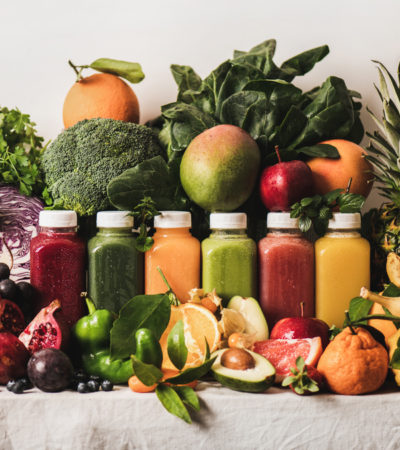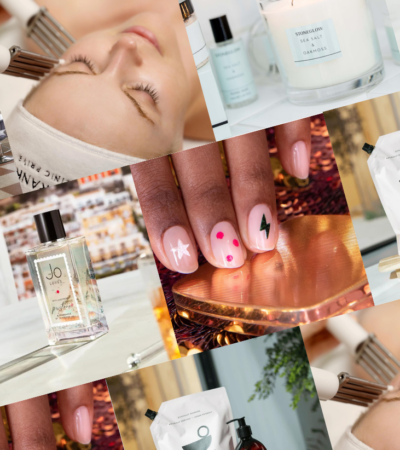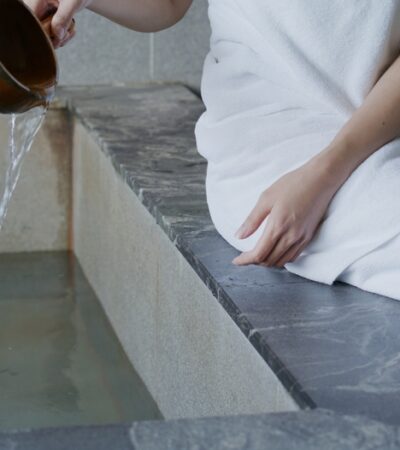If you suffer from pigmentation, don’t worry; you’re not alone. In fact, it’s one of the biggest skin concerns for women around the world, so much so that a report by natural health retailer The Drug Store found that online searches for ‘hyperpigmentation’ soared by a whopping 140% over the past year. And that’s when most of us were trapped indoors…
So, whether you’ve been battling with pigmentation for years, you’ve developed the pregnancy ‘butterfly mask’ (a.k.a. melasma) or you’ve managed to flee to warmer climes this summer and may have overdone the sunbathing, then Hip & Healthy is here to help. We turned to the experts to find out everything about pigmentation, including the best treatments and products to actually treat it. Finally.
What is pigmentation?
As Jemma White, Facial Trainer at Sisley, explains, “Your skin gets its colour from a pigment called melanin made by special cells in the skin. An overproduction of melanin – either from stress, ageing or the sun – can cause melanin to overproduce, in turn leading to clusters appearing on the surface of your skin, called pigmentation”.
Yes, it affects many of us. And yes, it’s not just limited to your face. “It’s a common skin concern that affects people of all skin types. It can appear in smaller patches, it can cover larger areas, and in rare cases can cover the entire body”, says Joyce Carslaw, founder of SmartAss Beauty. “Pigmentation happens when your skin produces more melanin (the pigment responsible for giving your skin its colour) than normal. The excess pigment is deposited deep within the skin, giving it a darker look than the skin around it. The risk of pigmentation issues increases with cell ageing and generally affects the areas that are most exposed to the sun over time (face, neck, hands, etc.).”
What causes it?
We all know the sun plays a big part in the development of pigmentation, but there are many other factors at play. “Depending on your skin type, you can be susceptible to different forms of pigmentation. For instance, post-inflammatory pigmentation happens after inflammation of the skin and follows injury or an inflammatory disorder (such as eczema, dermatitis etc.). While it’s a temporary phenomenon, it can be more intense and longer-lasting in darker skin types. For those with fair skin, freckles, which can be attributed to genetic makeup, can darken and increase in number after spending time in the sun”, explains Sharin Shafer, founder or leading Chelsea-based clinic Skinfluencer.
But it doesn’t stop there, as things like the pill, stress, and even pregnancy can add fuel to the fire. “Chloasma (melasma) is when patches of dark pigmentation appear, usually on your face, and this indicates hormonal changes. It is mostly, but not exclusively, associated with pregnancy hormones during pregnancy. Chloasma is sometimes called the ‘mask of pregnancy’”, reveals Carslaw. “It’s important to note that in some cases, hyperpigmentation can be a symptom of an underlying medical condition, such as Addison’s disease.”
How can it be treated?
From top-notch products to whizzy technology and treatments, the good news is, there are ways to treat and reduce the appearance of pigmentation. “In all instances, pigmentation conditions need careful management with an expert-recommended skincare routine that includes topical products and in-clinic treatments”, advises Shafer. “Chemical peels and energy-based treatments are extremely effective at resolving the visible effects of pigmentation, but both are best performed during autumn and winter as they can increase the skin’s sensitivity to the sun”. Basically, lasers (used in the right hands) are your best friend when it comes to this.
What about products?
When it comes to ingredients, there are a few powerhouse essentials that really can make a difference. So, when it comes to picking the perfect products, Carslaw recommends making sure they contain the below:
Retinol: “This is one of the most talked-about ingredients of the decade and can be helpful in reducing the appearance of dark pigmentation spots by speeding up natural skin cell turnover. Use in the evening only.”
Vitamin C: “Applying a product containing vitamin C can help fade marks of hyperpigmentation for a more even-toned complexion. By using products with both vitamins C and E, you can even your skin tone while enhancing its beautiful brightness.”
Vitamin B 3 Nicotinamide: “This powerful skincare ingredient has been clinically proven to reduce the appearance of hyperpigmentation and even skin tone.”
What’s the worst thing you can do for pigmentation?
Simply put? “Not giving your skin full protection against sun exposure and environmental damage is the worst thing you can do for pigmentation. We would always recommend protection for the skin is applied daily in all weather conditions”, says White. Yes, that means a superstrength SPF (even when it’s not sunny) and avoiding the sun during peak times (12-3). Also, “It’s important to avoid picking the skin after an injury or if you have acne or eczema etc. as this can also cause the affected area to be susceptible to a pigmentation condition called post-inflammatory pigmentation” warns Carslaw.
Shop our edit of the 5 best pigmentation-busting products
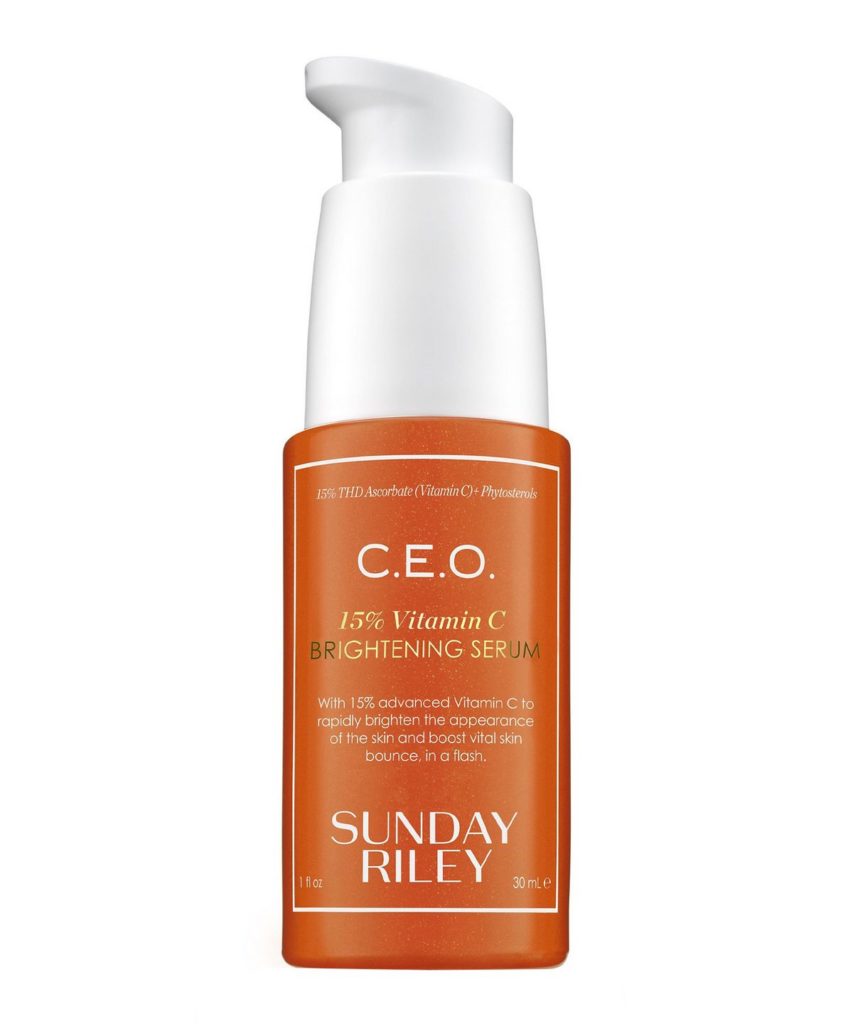
Sunday Riley ‘C.E.O. 15% Vitamin C Brightening Serum’ – £100
If you thought all vitamin Cs were created equally, think again, because Sunday Riley’s sell-out ‘C.E.O’ serum uses ultra-powerful THD Ascorbate. This incredible ingredient has become seriously in-demand thanks to its ability to absorb super-fast into skin to work its brightening, dark spot stopping magic, all without any oxidization issues associated with other forms of vit C. Plus there’s phytosterols to reduce sensitivity and saccharide isomerate extract to reduce the appearance of pores and lock in moisture to give you back your glow. If that wasn’t enough, it also fights signs of ageing – fine lines, wrinkles, dullness, and dehydration included.
Sisley ‘Sisleya L’Integral Radiance Anti Dark Spot Serum’ – £365
Sisley’s new super serum may come with a rather hefty price tag, but trust us when we say it’s worth every penny. Tackling the main causes of radiance loss while providing a huge hydrating hit, it’s packed with an innovative new ingredient lansium extract, as well as hexylresorcinol, which works at the source of melanin production to stop dark spots in their tracks. Not to mention it’s abundant in minerals, gingko biloba, wild rose, and soy peptide extracts to enhance radiancy and stimulate collagen production. The result? Smoother, plumper, younger-looking skin, without a dark spot in sight.
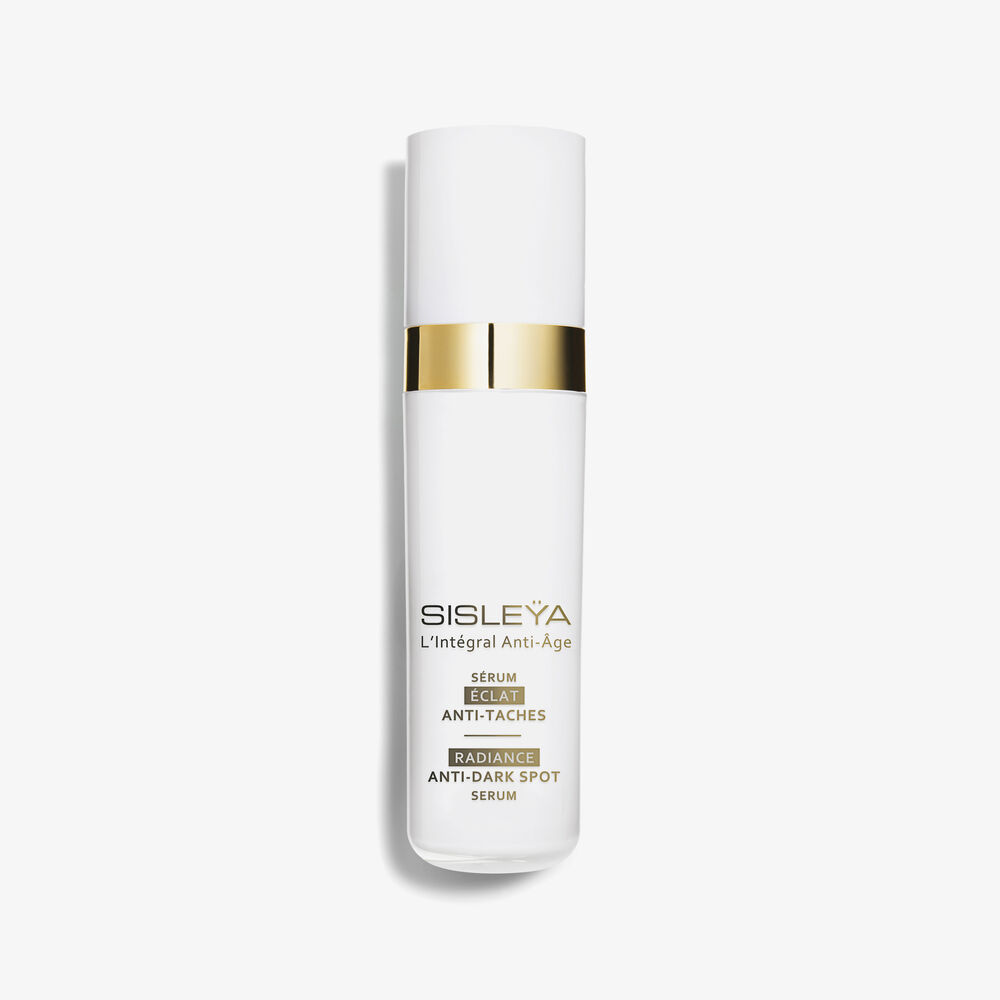
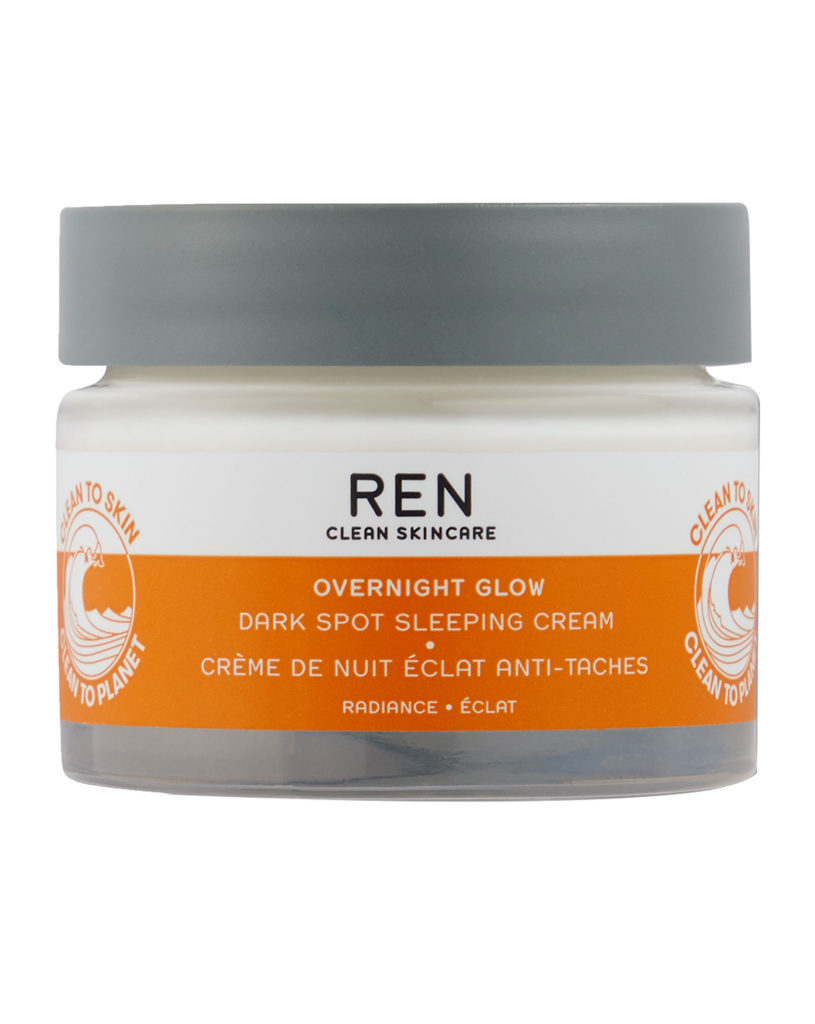
REN ‘Overnight Glow Dark Spot Sleeping Cream’ – £49
Working while you sleep to keep dark spots at bay, REN’s pigmentation-fighting night cream packs a serious punch. Totally vegan and made with 94% naturally derived ingredients, it’s clinically proven to reduce the appearance of dark spots and pigmentation in just seven days by targeting the skin’s natural nighttime reparative processes. How? By using encapsulated algae complex to tackle pigmentation and PhytoGlycogen to smooth and enhance the glow. Can you say Sleeping Beauty?
Shani Darden ‘Retinol Reform’ – £89
When the likes of Rosie Huntington-Whiteley and Jessica Alba trust a facialist with their skin, you know they aren’t going to go for just anybody. It’s, therefore, safe to say that Shani Darden – and her curated selection of luxe skincare – are far from average. Especially when it comes to her amazing ‘Retinol Reform’. Unbelievably effective and gentle, it uses 2.2% encapsulated retinol and 2% lactic acid to melt away dry, dead cells, boost elasticity and collagen production, refine texture, and – of course – reduce the appearance of dark spots, pigmentation, scars, and pores. Perfection.
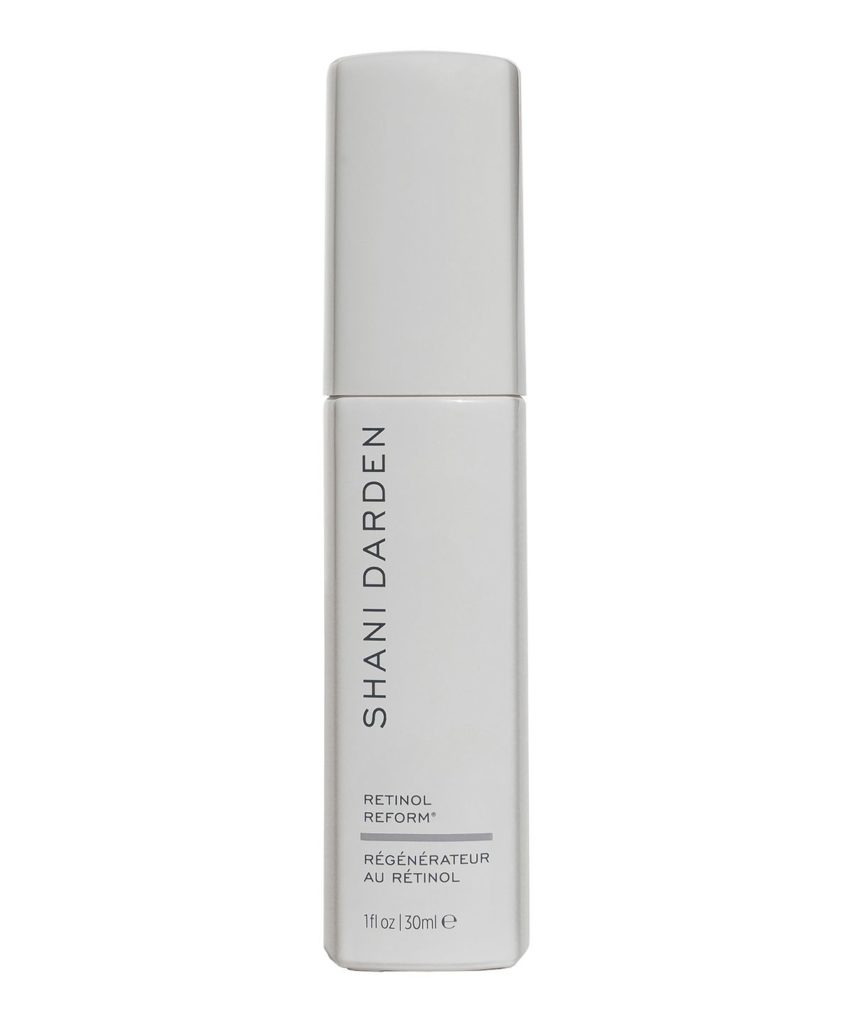
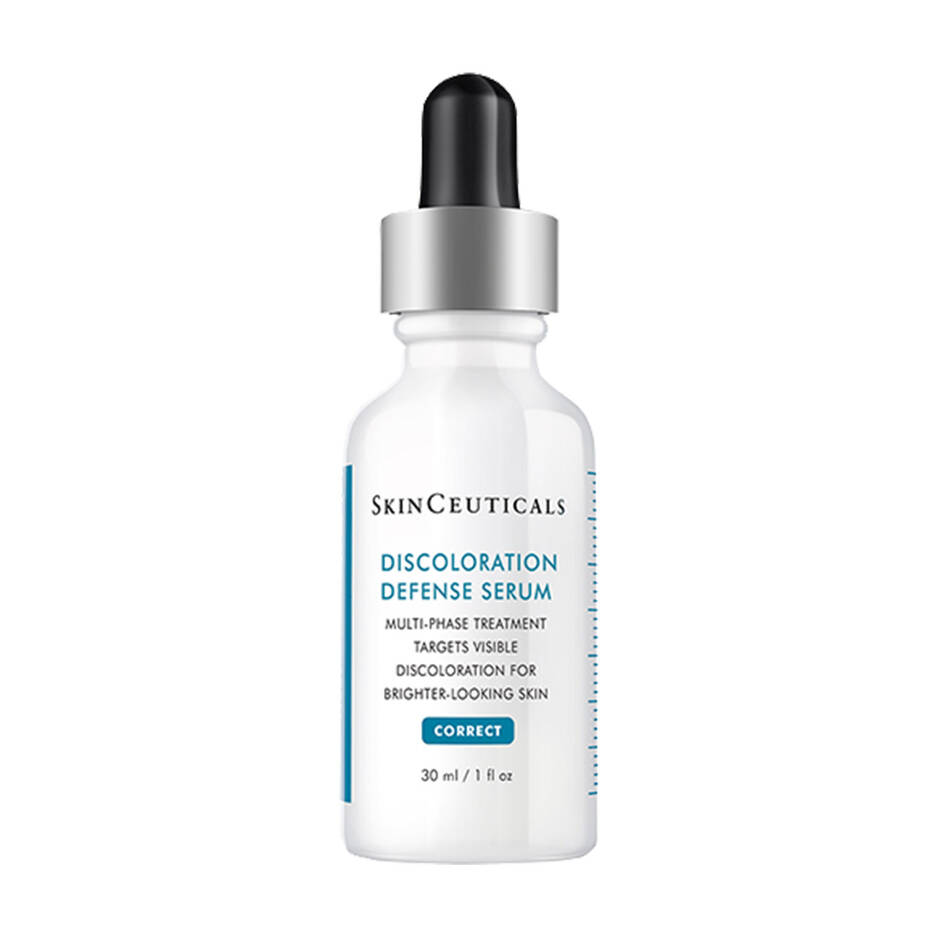
SkinCeuticals ‘Discoloration Defense Serum’ – £89
Boasting some of the best skin treatments in the business, you know you can trust SkinCeuticals to deliver when it comes to pigmentation perfecting products. Needless to say, its ‘Discoloration Defense Serum’ does not disappoint. A potent blend of whizzy ingredients (5% niacinamide, 5% hepes, and 1.8% tranexamic acid to name a few), it’s clinically proven to help reduce key types of discolouration, from the most stubborn of brown patches to post-breakout scars, and to promote brighter, more even skin.
words by Frankie Rozwadowska







